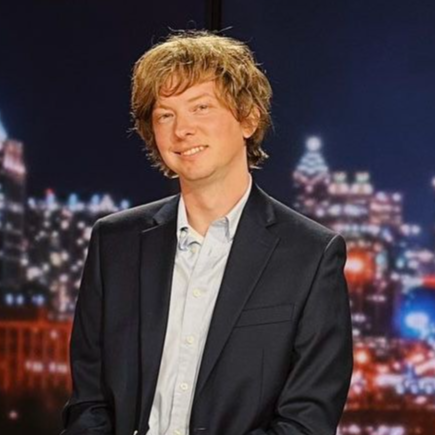Braves’ draft marks first step in replenishing post-penalized farm system
The Braves’ minor-league system has vaulted them into contention earlier than expected.
Whether it can keep them there remains to be seen, and part of that will be predicated on the 2018 draft’s hit rate.
General manager Alex Anthopoulos knew he inherited unprecedented limitations when he accepted his post last November. Despite having baseball’s best farm system, there are unique challenges to maintaining it.
MLB punished the Braves after a lengthy investigation that found the previous regime committed multiple infractions, most of which occurred in illegally packaging bonuses for international signees.
The Braves can’t exceed $300,000 this signing period, and will be limited to $10,000 per player maximum in the 2019-20 periods, while also losing half their bonus pool (estimated $4.75 million) in 2020-21.
Making matters worse, the team was forced to forfeit 13 prospects, a heavy hit to organizational depth regardless of how the players turn out.
In addition, the Braves lost their third-round pick in last week’s draft. The team believes it compensated by adding three first-round talents: Starting pitcher Carter Stewart, outfielder Greyson Jenista and starting pitcher Tristan Beck.
Scouting director Brian Bridges and his staff will have to hope they’re right, then replicate that success a few more times.
The international restrictions add further emphasis to the domestic draft, and while it didn’t alter the Braves’ early picks, Bridges admitted signability is that much more important.
“What has happened penalty-wise is in the past,” Bridges said. “It has crippled us in certain areas. But in certain areas it hasn’t. We’re going to have to focus on signing more domestic players. That’s nothing to keep from anybody.”
Being shut out of the international market can’t have an understated impact. Ten of Baseball America’s top 15 prospects before the season were international signings.
It’s the type of damage that won’t necessarily be felt immediately, but could haunt the team years down the road, especially as it tries to replenish the lower levels while presumably a “buyer” in future trade deadlines and winters.
“But losing 13 players internationally is something, the organization takes a hit,” Bridges said. “It makes it harder on player development. But with saying that, it’s our job to sign as many players as we can who can make it to the big leagues, or at least help out along the way.”
The Braves have moved quickly to sign a portion of their 2018 class, including Jenista, fifth-round pitcher Trey Riley and sixth-round outfielder Andrew Moritz.
A deal with Stewart could come as soon as this week, with a potential ripple effect from there.
The Braves were working with less money than recent years ($8,267,300 bonus pool). That, paired with the signability emphasis, prompted selecting 34 collegiate players in 39 picks.
“The money and the lack thereof as we’ve had in the past,” Bridges said regarding the newfound strategy of investing in college talent. “When you have that kind of money going into the draft, money is power. That gives you the power to go after some of the guys who are unsignable or have high price tags, and it gives you a chance to take more of those high school players at that point. So you have to play the hand you’re dealt.”
The hand the Braves were dealt won’t make life any easier as they blossom into one of the game’s youngest, most exciting contenders.
They sit atop the standings June 13 because of the ever-revolving talent produced from their farm. As more prospects graduate or fade, it won’t be as easy to replenish the well this time around.
They won’t be sellers every deadline or offseason. They probably won’t be signing a Ronald Acuna or Ozzie Albies. It’s unlikely they coax another team into a Shelby Miller for Ender Inciarte and Dansby Swanson deal.
The pressure falls on Anthopoulos and Bridges. And if they continue developing talent as they have, the Braves might just be alright.



